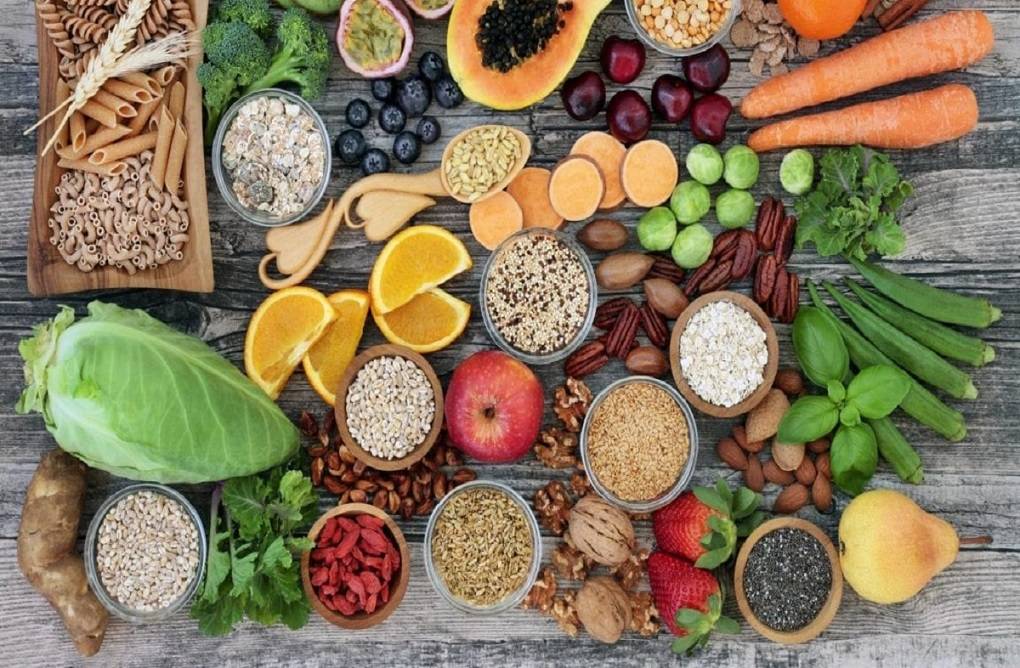
Nutrient refers to any substance that plants, animals, human beings, and other organisms need for the maintenance of life and for growth. A healthy diet is a diet that consists of nutrient-dense foods. Eating foods that are full of empty calories and devoid of nutrients leads to malnutrition. Malnutrition is a condition where a person is not getting enough of certain nutrients.
People not consuming nutritious foods can develop serious health issues such as diabetes, heart disease, stunted growth, and eye problems. Our body can become deficient in certain nutrients not only because of our diet, lifestyle, and environment but also because of illnesses that can hinder the absorption of nutrients. Now, let us take a look at some common nutrient deficiencies and ways to prevent them.
Iodine deficiency- Iodine is an essential mineral that our body uses to produce thyroid hormones and for maintaining normal thyroid function. The thyroid hormones play an important role in regulating our metabolic rate, brain development, growth, and bone maintenance. Insufficient iodine consumption can lead to goitre, a condition where our thyroid gland is enlarged.
It can also lead to weight gain, shortness of breath, developmental abnormalities, and increased heart rate. In India, salt is fortified with iodine to reduce the incidence of iodine deficiency. However, eating foods that are a good source of iodine, such as seaweed, fish, dairy, and eggs can help prevent iodine deficiency.
Magnesium- Spinach, nuts, whole grains, peanut butter, avocado, and legumes are rich in magnesium. In our body, magnesium assists in enzymatic reactions helps make protein, helps with the synthesis of DNA, promotes a healthy immune system, and facilitates nerve transmissions. A diet low in magnesium can cause weakness, muscle cramps, seizures, loss of appetite, nausea, and personality changes.
Protein deficiency- Protein is considered the building block of our muscles, skin, enzymes, and hormone. Deficiency of protein is a cause for concern as it can lead to hair thinning, brittle nails, excessive hair loss, red and patchy depigmented skin, inflammation of the liver, loss of muscle mass, and puts our bone at a greater risk of bone fractures. Protein deficiency can be prevented by eating legumes, nuts, seeds, eggs, chicken, whey protein, and beef.
Calcium- Our bodies absorb calcium from eggs, green leafy vegetables, nuts, salmon, sardines, thyme, oregano, cinnamon, tofu, and nuts. Calcium is important for maintaining healthy bones and teeth, blood clotting, and blood pressure regulation, aiding in metabolic functions, helping muscles relax and contract, and facilitating the functioning of the immune system. Without calcium, our hearts, muscles, and nerves would not be able to function. Calcium deficiency in children can lead to soft bones or rickets and in adults, it can lead to osteoporosis or fragile bones.
Iron deficiency- Iron deficiency is a type of anemia- a condition where blood has a low healthy red blood cell count. Iron deficiency can make people lightheaded, weak, and feel constantly fatigued. Iron is an essential nutrient that our body requires for development and growth, along with producing hemoglobin (a protein in our red blood cells that carries oxygen from the lungs to all parts of the body) and some other hormones.
Our body receives this mineral from food and from iron supplements. Iron deficiency can be prevented by consuming iron supplements or by consuming foods such as red meat, leafy vegetables, nuts, fortified cereals, and dried fruits are great sources of iron. Additionally, you can also consume vitamin C to enhance the absorption of iron in your body.
Potassium- Potassium is found in sweet potatoes, dairy products, potatoes, bananas, carrots, prunes, beans, and lentils. Potassium helps balance fluids, maintains normal blood pressure, prevents heart arrhythmia and swelling, reduces the risk of hypertension and stroke, and facilitates nerve transmissions and muscle contractions. Potassium deficiency can lead to muscle weakness, twitching, cramps, constipation, abnormal heart rhythm, and numbness.








